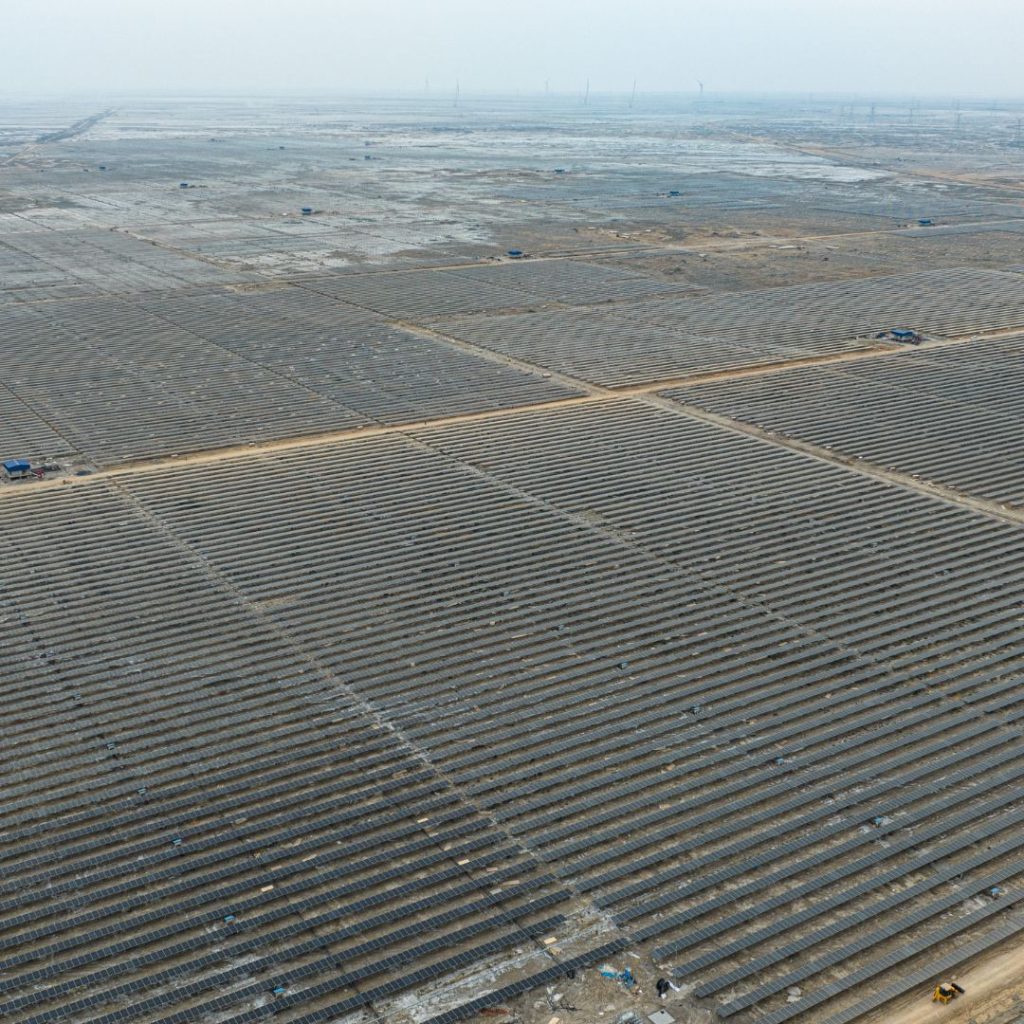The world's largest power plant is being built in India

The dimensions of the Gujarat Hybrid Renewable Energy Park in a salt desert in western India are gigantic. This power plant, which once completed will contain solar energy modules and wind turbines on an area of over 72,000 hectares, five times the size of Paris, will even be visible from space. India has overtaken China as the world's most populous country. Its hunger for energy is enormous and will rise sharply in the coming years due to its growing middle class. Coal currently accounts for 70% of the electricity generated in India.
"A region that is so large, a region that is so unpolluted, where there is no wildlife, no vegetation and no settlements. There is no better alternative use for this land," said the Managing Director of Adani Green Energy Limited (AGEL), Sagar Adani in an interview with CNN. He is also the nephew of Gautam Adani, the second richest man in Asia, whose 100 billion dollar fortune comes from the Adani Group.
The parent company is the largest coal importer and leading mining company for the dirty fuel, but according to CNN, it plans to invest 100 billion US dollars in the energy transition over the next ten years and invest the equivalent of 70% of its income in the expansion of renewable energies. According to Adani, failing to switch to renewable energies is not an option.
"India has no choice but to do things on an unprecedented scale and scope"
said the 30-year-old.
Sagar Adani's clean energy division, AGEL, is building an extensive solar and wind power plant in the western Indian state of Gujarat at a cost of around 20 billion dollars. The mega project is due to be completed in five years and will then supply 16 million households with electricity. It could therefore supply the whole of Switzerland with electricity.
The government under Prime Minister Narendra Modi has set itself the goal of renewable energies meeting half of India's energy needs by the end of this decade. This means creating a power generation capacity of 500 gigawatts (GW) from non-fossil fuels by 2030. AGEL aims to provide at least 9% of this, with almost 30 GW to be generated by its Khavda park in Gujarat alone.
"If India does what China has done, if India does what Europe has done, if India does what the US has done, then we are all in for a very, very bleak climatic future," Adani explained regarding the use of fossil fuels.
Some facts about the current operation
India's largest and one of the world's leading renewable energy (RE) companies, has commissioned a cumulative capacity of 1,000 MW of solar energy at the world's largest RE park in Khavda, Gujarat this March. With this, AGEL has reached an operational capacity of 9,478 MW and continues its journey towards its stated target of 45,000 MW by 2030.
AGEL delivered 1,000 MW in less than 12 months after work began in Khavda. Around 2.4 million solar modules were installed. The accelerated progress underscores AGEL's commitment to India's target of achieving 500 GW of non-fossil fuel capacity by 2030.
Furthermore, 126 MW of wind power capacity was also commissioned this March in Khavda, Gujarat, just a few kilometers from the border with Pakistan. This completes the 300 MW project, with 174 MW having been commissioned previously.
The 300 MW wind power project will produce approximately 1.091 million units of electricity, resulting in the avoidance of approximately 0.8 million tons of CO2 emissions per year, the company said in a press release.
Photo ©️ AGEL






